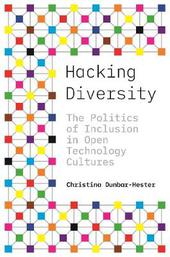
|
Hacking Diversity: The Politics of Inclusion in Open Technology Cultures
Hardback
Main Details
Description
A firsthand look at efforts to improve diversity in software and hackerspace communities Hacking, as a mode of technical and cultural production, is commonly celebrated for its extraordinary freedoms of creation and circulation. Yet surprisingly few women participate in it: rates of involvement by technologically skilled women are drastically lo
Author Biography
Christina Dunbar-Hester is associate professor of communication in the Annenberg School for Communication and Journalism at the University of Southern California. She is the author of Low Power to the People: Pirates, Protest, and Politics in FM Radio Activism.
Reviews"Winner of the ASIS&T Best Information Science Book Award, Association for Information Science and Technology" "Finalist for the Rachel Carson Prize, Society for Social Studies of Science" "[Dunbar-Hester's] conclusions are refreshingly universal and her insights will be valuable to many people seeking to make their industries more diverse and inclusive." * Lady Science * "Dunbar-Hester notes that diverse hacking efforts in open technology communities have made some progress toward creating more inclusive environments. But these efforts remain limited in their approach and conflate technological participation with the social power that is an outgrowth of it. Framing diversity in open technology communities as a problem of representation is convenient and does produce some morally good outcomes."---Jenna P. Carpenter, IEEE Technology and Society Magazine "An innovative and valuable work . . . Dunbar-Hester's qualitative exploration can serve as a rich foundation for further investigation into the dynamics of intersectional communities, justice work, and technology studies."---Rowan McMullen Cheng, Information, Communication, & Society
|